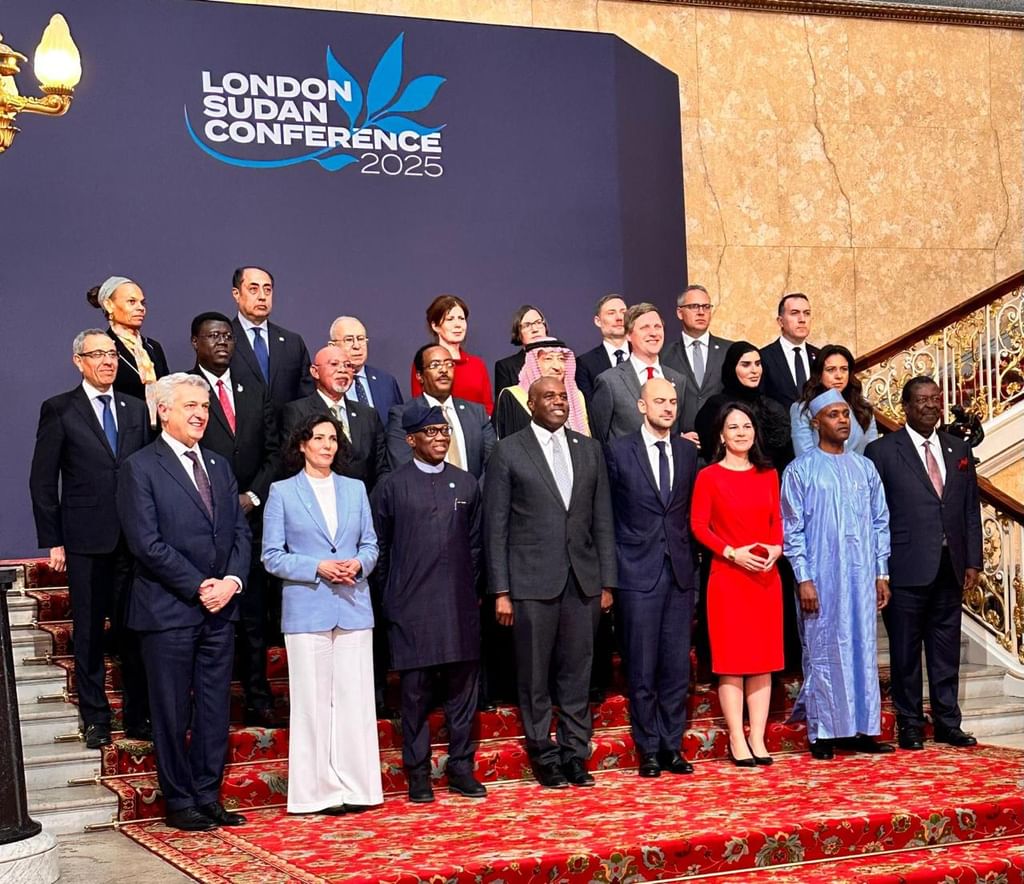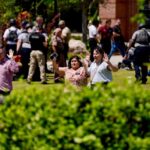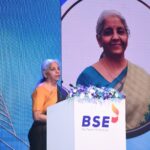Lana Nusseibeh, Assistant Minister for Political Affairs, led the United Arab Emirates (UAE) delegation at the recent Conference for Sudan, hosted in London.
The event was co-chaired by the United Kingdom, Germany, France, the African Union (AU), and the European Union (EU), and brought together a wide range of international stakeholders seeking solutions to Sudan’s ongoing crisis.
The meeting included foreign ministers and senior representatives from countries such as Canada, Egypt, Saudi Arabia, the United States, Ethiopia, and South Sudan, as well as key international organizations such as the United Nations, IGAD, the League of Arab States, and the International Committee of the Red Cross (ICRC).
Condemning Atrocities and Calling for Accountability
During the conference, Nusseibeh addressed the extensive human suffering caused by Sudan’s conflict, highlighting grave human rights violations.
She outlined “widespread atrocities, systematic sexual violence, the reported use of chemical weapons, and the obstruction and weaponisation of humanitarian assistance,” emphasizing the UAE’s strong condemnation of such acts. She also called for accountability for violations of international humanitarian law, particularly citing recent attacks in Darfur and brutal assaults on Zamzam and Abu Shouk camps.
Urgent Need for Arms Monitoring and Political Roadmap
Nusseibeh stressed the importance of international oversight on weapons entering Sudan. She called for “a mechanism to monitor the flow of all arms into Sudan,” and emphasized the need for action:
“Concrete and collective action to build a peaceful, unified, and hopeful future for the country.”
She firmly rejected the legitimacy of both warring factions—the Sudanese Armed Forces (SAF) and the Rapid Support Forces (RSF)—stating:
“The UAE is unequivocal: neither the SAF nor the RSF represents the people of Sudan and neither can bring stability to Sudan.”
According to Nusseibeh, only a Sudanese-led process rooted in independent civilian leadership can deliver true change.
“To secure and sustain peace in Sudan we must have a viable political process with a clear end game – the transition to an independent, civilian-led government independent from military control.”
Addressing Regional Risks and Preventing Extremism
Nusseibeh underscored the importance of tackling broader regional implications of the Sudanese crisis:
“Sudan does not exist in isolation and lasting peace requires addressing wider regional risks,” she said. “This includes ensuring that Sudan never again becomes a safe haven for extremism, terrorism, and threats to international maritime security.”
She urged action to prevent such networks from taking root, highlighting them as essential to long-term regional peace.
Criticism of Humanitarian Obstruction and UN Response
Nusseibeh called for a stronger, more unified international response to the worsening humanitarian crisis:
“The arbitrary assertion of sovereignty must never be used to justify starvation… Sudan’s civilians deserve protection, access, and accountability and we need to do much more.”
She criticized the systematic obstruction of aid and called on the United Nations to adopt a more robust stance.
Supporting Women and Civil Society Leadership
The Assistant Minister also highlighted the vital role Sudanese women continue to play:
“They inspired the 2018 transition to civilian rule and continue to serve on the frontlines through Emergency Response Rooms, often in places beyond the reach of international actors.”
She emphasized the need to ensure women’s “full, equal, and meaningful inclusion in the political process.”
Call for International Unity and Leadership
In closing, Nusseibeh issued a strong call for collective international leadership:
“The absence of a coherent and united international effort to advance a credible political process is increasingly untenable and we are rightly being called upon to deliver collective and decisive action. This moment demands principled leadership and sustained international resolve.”
The UAE has already provided over US$600 million in humanitarian aid to Sudan and neighboring countries. Nusseibeh reaffirmed the country’s commitment to work with partners to ease suffering and promote peace, with aid delivered “impartially, based on need, and in coordination with UN partners.”
Diplomatic Engagements in London
During the visit, Nusseibeh met with several international counterparts including the UK’s Foreign Secretary David Lammy, U.S. Deputy Assistant Secretary Peter Lord, Kenya’s Prime Cabinet Secretary Dr. Musalia Mudavadi, France’s Foreign Affairs Minister Jean-Noël Barrot, and ICRC President Mirjana Spoljaric.
She was joined by Mansour Belhoul, UAE Ambassador to the UK, and Maha Yaqoot Harqoos, Head of South Africa affairs at the UAE Ministry of Foreign Affairs.






